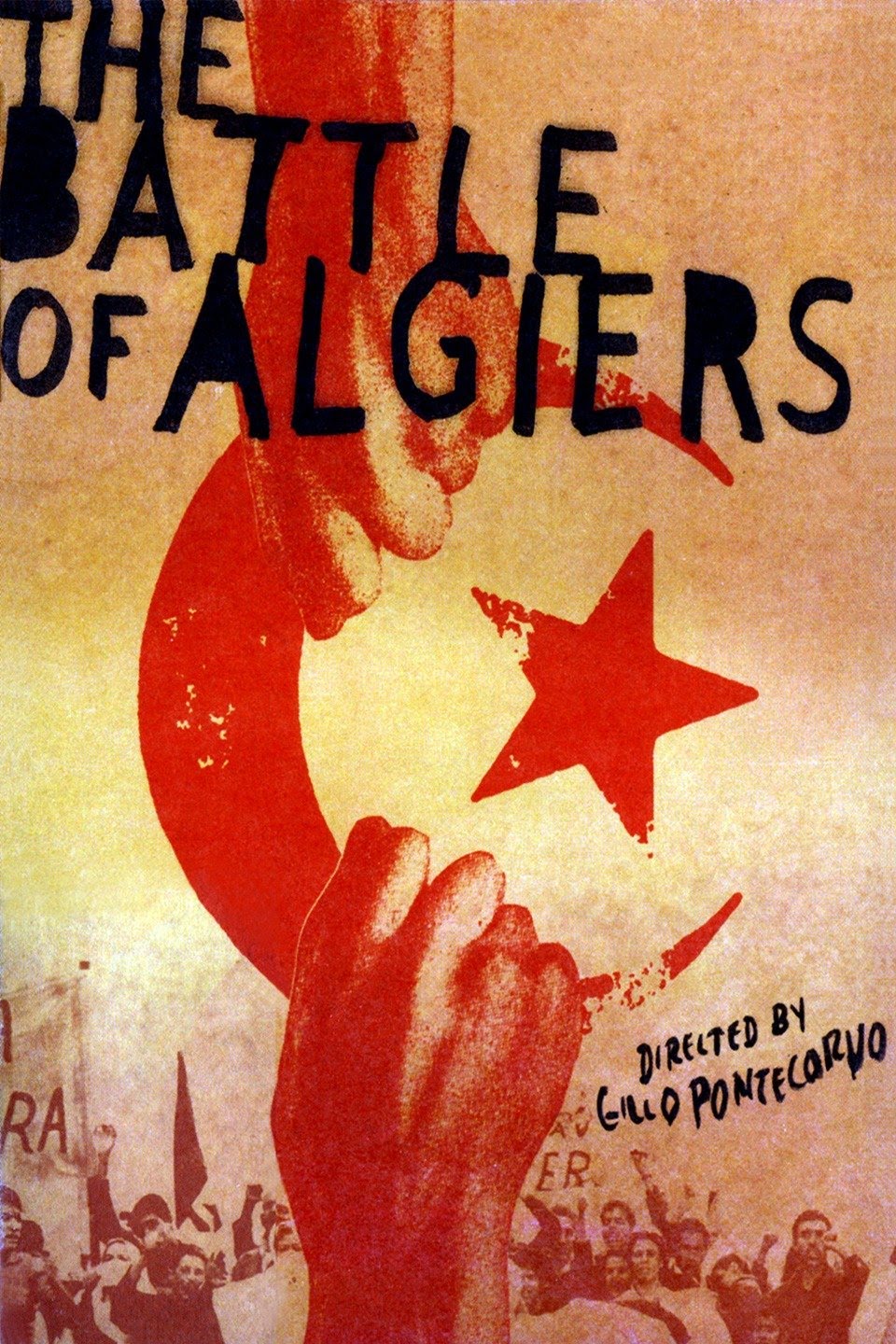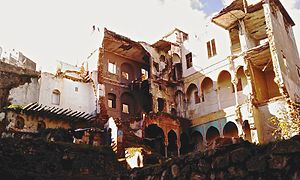Short Essay: Description
The final paper will be on analyzing an object through the postcolonial lens that I’ve been learning through the semester. Leading up to the final paper, we are asked to write four short essays about the object (DIET - Describe the object, Interpret its meaning, Evaluate its significance, outline the Theoretical Frameworks with which to analyze it). Today I will Describe the object.

I will be writing about the film The Battle of Algiers (1966) by Gillo Pontecorvo.
Summary
Set in the capital city Algiers in 1956 through 1957, the film depicts a violent uprising against French occupation by the National Liberation Front (FNL). It portrays the reasoning, strategies, and responses of both sides as the uprising.
The core of the film lies on the conflict between the two main actors, the French military and the FNL. The French colonel Mathieu, in charge of the project to eradicate the FNL, sums it up succinctly: “The problem is: the FNL wants us to leave Algeria and we want to remain.” Throughout the year of escalating violence, the FNL attempts to spark an insurrection in the public. Using a variety of guerrilla tactics and terrorism against civilians, they fight against the French police/military and try to sway public sentiment (internally and internationally). We see the French respond with increased surveillance, indiscriminate torture to extract strategic intelligence, and harassment to assert control.
The film comes to a climax when the FNL organizes a general strike of the whole Muslim quarters during UN discussions about the “Algerian Question.” Commander Mathieu uses it as an opportunity to strike a counter-attack, rounding up the natives to force them to work, and torturing suspected FNL associates for intelligence, to map out and arrest or kill the entire organization.
The finale shows the last of the freedom fighters hiding in a false wall, with the house invaded by the military. After they refuse to leave, Mathieu explodes the entire house, killing the last of the FNL in Algiers.
The film ends with a few shots of mass demonstrations many years later (1960-62) for Algerian independence showing that while the military won this battle, the movement did not end and Algeria eventually won its independence.
Remains of the explosion that killed the real Ali la Pointe

Public Opinion
One particularly interesting topic arising in the movie are the few scenes that directly discuss public opinion and the role of journalists in a war. We see Mathieu give multiple press conferences, where he never fails to remind the journalists that the outcome of the war depends on them, to sustain public and political support.
On the FNL front, they recognize that the Muslim quarter Casbah is an important area for them to operate out of, and work on securing public support there. Discussing the general strike, Ben M’hidi a leader of the FNL explains its importance:
“Wars aren’t won with terrorism, neither wars nor revolutions. Terrorism is a beginning but afterward, all the people must act. This is the reason for the strike, and its necessity: to mobilize all Algerians, count them and measure their strength”
Presentation of Violence
I am also interested in the depiction of violence from both sides. The liberation front’s attacks targeting French civilians are shown relatively neutrally, not condemned nor sugar coated. In the film they do not discuss the validity of these tactics, and I am hoping to find writings by FNL from the period to better the sentiment and goals of their terrorism.
I was shocked at how bluntly Mathieu spoke about his strategic use of violence, particularly to journalists. Asked about torture in their interrogation techniques, he answers:
“We are soldiers and our only duty is to win. Therefore, to be precise, I would now like to ask you a question: Should France remain in Algeria? If you answer “yes,” then you must accept all the necessary consequences.”
Notes:
Subjects
- French military
- Colonel Philippe Mathieu
- National Liberation Front (FNL)
- Ali La Pointe - based on historical freedom fighter
- El-hadi Jafar
- commander of FNL, recruits Ali
- Assorted unnamed associates
Violence
- Military
- Indiscriminate harassment (including murder)
- Shooting into protesters / dissenters
- Retaliation: bombing FNL houses and shooting up streets
- FNL
- Police shootings
- To loot weapons and create fear
- As a recruiting method, to verify loyalty
- Civilian terrorism
- Bombing of businesses
- Car manslaughter
- Police shootings
Tactical Strategies
- Military
- Checkpoints
- Intimidation / Harassment
- Torture for intelligence
- FNL
- Trying to sway population on their side
- Show violence of occupation
Importance of Cultural Narrative
- Journalists for french
- FNL doing good in community
Presentation of FNL
- Wedding “act of war”
Goals
- Military
- “The problem is: the FNL wants us to leave Algeria and we want to remain. Now, it seems to me that, despite varying shades of opinion, you all agree that we must remain.”
- FNL
- Goals of terrorism never explicitly explained. To drive out French occupation, and fight back against invasion
- MATHIEU: “It is an inevitable stage in revolutionary war; from terrorism, one passes to insurrection … as from open guerrilla warfare one passes to real war, the latter being the determining factor …”
- BEN M’HIDI: “That’s true … Wars aren’t won with terrorism, neither wars nor revolutions. Terrorism is a beginning but afterward, all the people must act … This is the reason for the strike, and its necessity: to mobilize all Algerians, count them and measure their strength …”
- General strike to bring attention to and sway French and international public opinion
- Goals of terrorism never explicitly explained. To drive out French occupation, and fight back against invasion
Ending
- French won battle
- FNL dead/arrested
- years without terrorism in the city